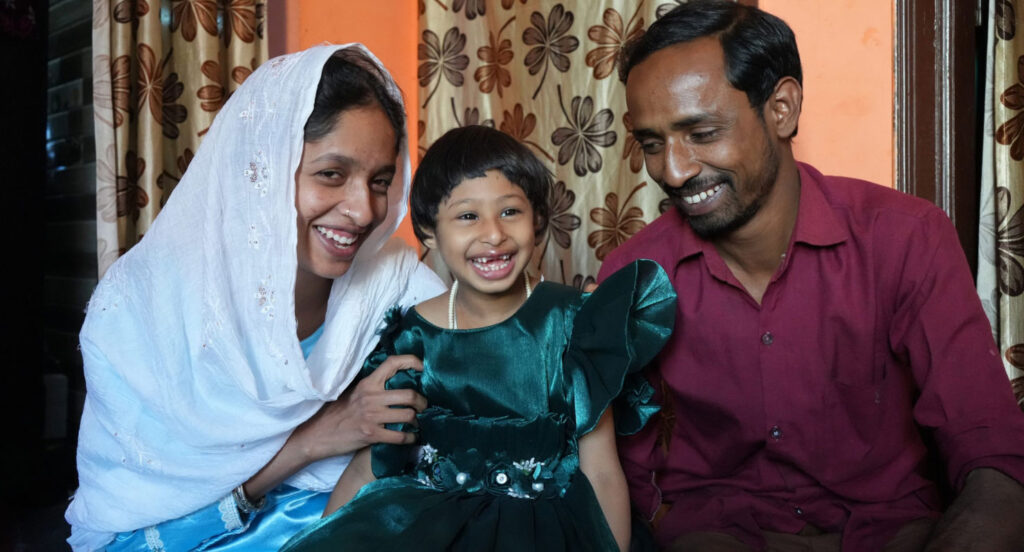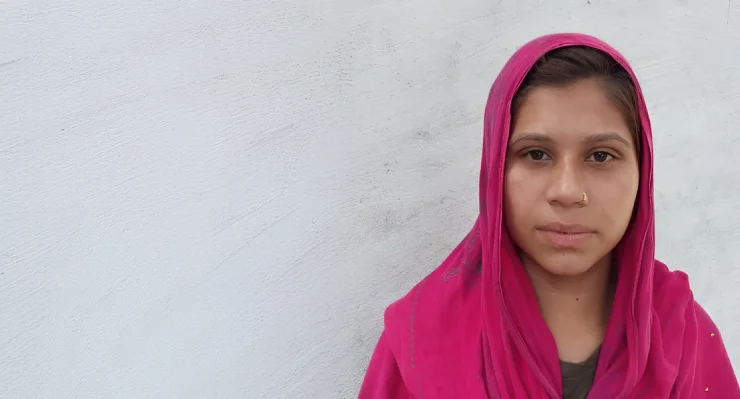Youth education and employment are top policy priorities in India. However, this country’s unemployment rate among underprivileged youths (15-34 years) was roughly 25% in 2020. The Coronavirus pandemic exposed deep-rooted structural imbalances between rural and urban, male and female, and rich and poor populations. Due to the extreme digitalisation during the pandemic, switching from traditional classroom learning models to online platforms such as zoom classrooms was inevitable. With no proper digital infrastructure, teachers and students faced unprecedented challenges transitioning to digital classrooms.
As a result of a lack of digital infrastructure and poor internet connectivity, the youths of Gowtham Nagar bustee, Hyderabad, were either out of school or not able to attend online classes. One of the major challenges of remote learning is the disparity in access to electricity and internet connection, as well as computers and smartphones.
Nazeer from Hyderabad lives with his father and mother in the bustee. Currently, he needs to care for his ailing father, a farmer who is 72 years old. The family’s primary source of income comes from Nazeer’s mother, a daily wage worker. Despite overcoming physical disabilities, Nazeer had to discontinue his intermediate level studies due to poor health and a lack of resources. To provide for his family, he decided to earn money himself.
CBM established an electronic literacy and soft skills training centre for 80 youths in Gowtham Nagar, Hyderabad, with the help of local community partner Prem Marg Society. This inclusive computer training centre focuses primarily on youths with disabilities to improve their employability skills.
During the initial stage of the sensitisation program, the training centres identified the potential candidates. This program was designed for students who are entering college or have left education after high school and are interested in careers such as front desk managers, cashiers, and shopkeepers. During the course, the counsellors mentored the youth to identify their skills and interests and helped them choose career paths.
When Nazeer heard about computer training in his community through his friends, he was more than eager to take advantage. He approached a community mobilizer from CBM to inquire more about the programme. Enthusiastically, he rounded up some friends and joined for three months.
Classes were held after school every day for two hours. The centres teach interpersonal and communication skills, which are vital to success. The computers are equipped with special software that allows students with disabilities to access them. Each month, there was a short evaluation. At the end of the course, CBM certified their participation. Nazeer recalls fondly this time with the team where they introduced him to the fundamentals of technical communication such as operating systems, Microsoft Office, email, etc. “I was immersed in the English training course on attending interviews.” Nazeer says. I learned how to speak English fluently and confidently. Practicing mock interviews helped me gain the confidence to succeed in interviews. Through newspapers, websites, agencies, and advertisements, the team introduced me to many opportunities,” says Nazeer.
By participating in this program, youths were able to find gainful employment. The program also highlighted the potential of students with disabilities as a valuable resource pool for several market sectors. Nazeer now teaches computer classes at Triveni High School. His confidence in his abilities is unwavering. Thank you for all the assistance during my job search. “Your expertise, training, and help have been invaluable,” Nazeer smiled. Besides Nazeer, 10 batchmates have been employed in various organisations as teachers.



